Suffolk farmers are facing a nerve-wracking end to the sugar beet campaign as tough wet conditions mean they cannot get into the fields to finish their harvests.
And there are already fears that less food will be grown overall this year due to the dire conditions.
The clock is ticking on this season’s East Anglian sugar beet harvest, as British Sugar – which processes the crop at factories including Bury St Edmunds, Cantley and Wissington – prepares for its annual shutdown. The Bury factory will close tomorrow (March 9).
The harvest is delivered to the factories in the autumn and winter months, but at a certain point it becomes financially unfeasible to keep them open as the load decreases.
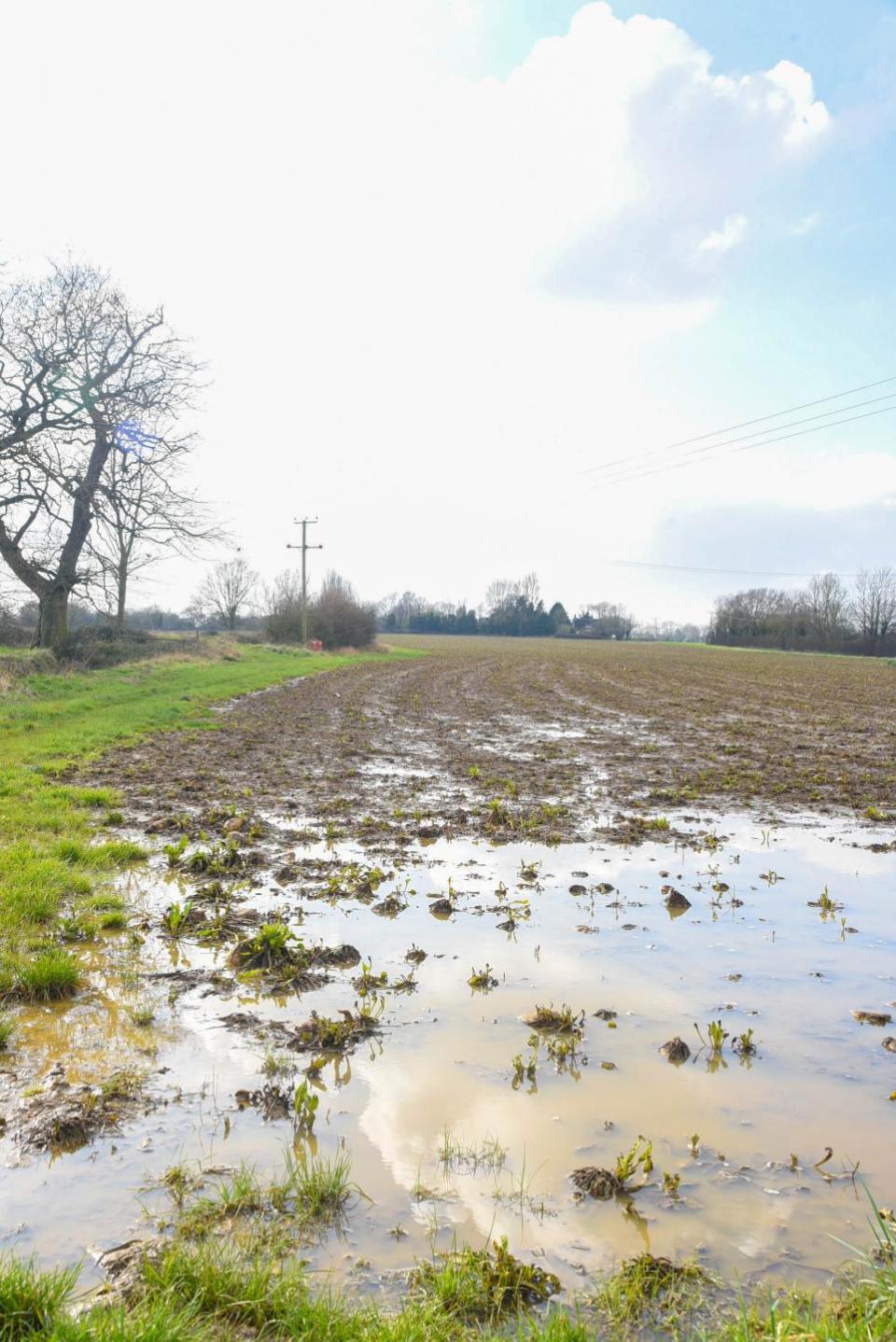
James Forrest, from Stonham, near Stowmarket, said the conditions were “unprecedented”.
“Things started to get a bit wet at the beginning of March and that lasted almost 12 months,” he said.
“We only finished sowing the sugar beet crop in the third week of May and there are still sugar beets in the ground.”
Although the beet factory would now like to take its harvest, it cannot remove it from the field without machines seizing up and the soil being severely damaged.
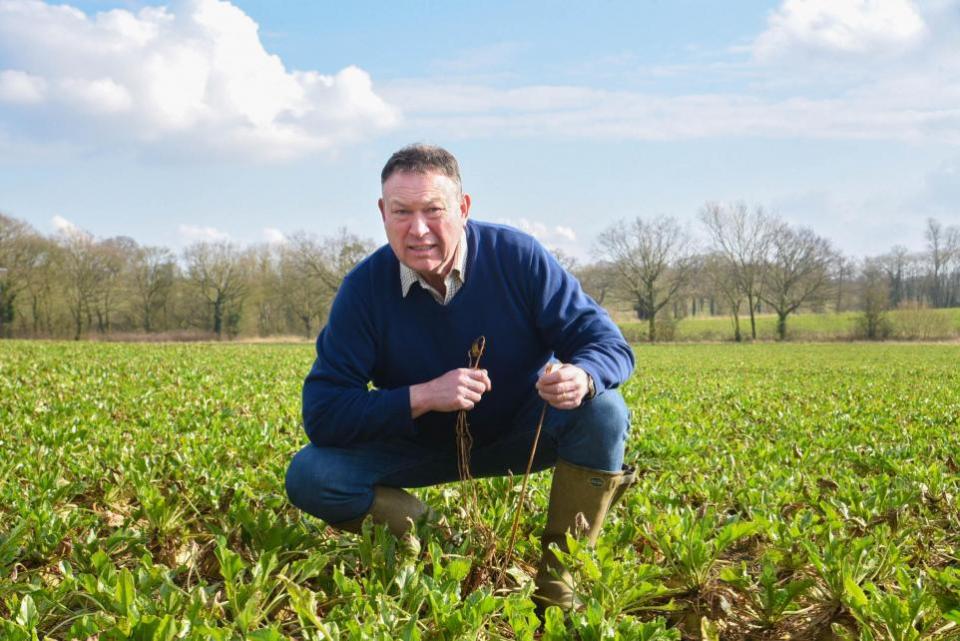

“Our beets go to the Bury factory, so if there are not enough beets to continue economic production, there comes a time when they stop and the beets are diverted elsewhere to Cantley or Wissington.
“In the past we have hitchhiked in April. We are being as patient as we can to keep damage to a minimum.”
Even before the floods in October (Storm Babet), things were not going well.
“We lost a lot of winter barley straw because the rain was so terrible that we ended up having to chop the straw – so the harvest was challenging to say the least,” James said.
The grain harvest was a challenge due to rain, and in October farmers faced a “terrible” time when their winter drilling period closed.
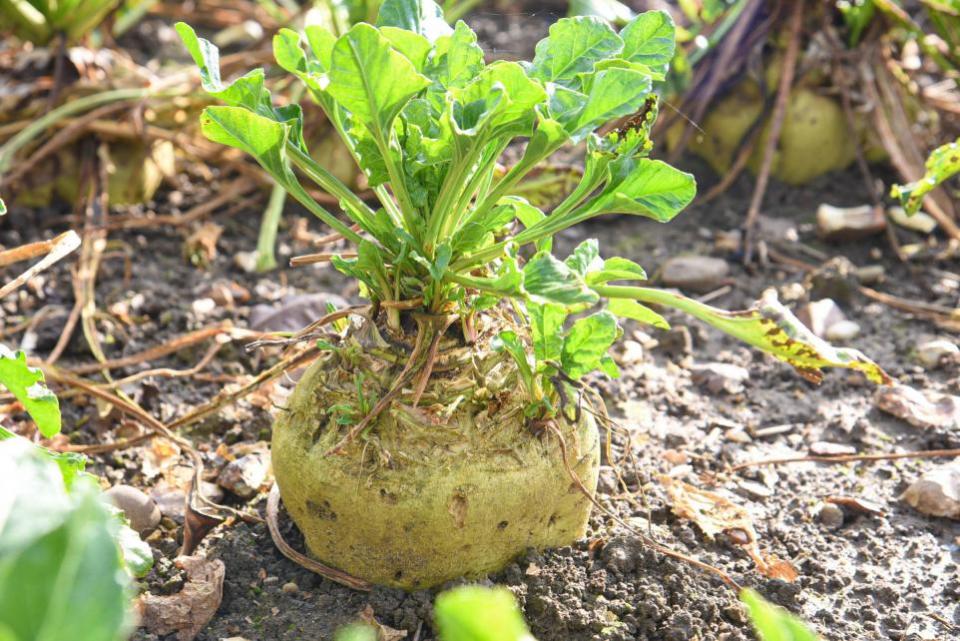

James managed to send his beet shipments to the factory on October 14 and then on January 18, but since then conditions have not allowed the harvest to be harvested.
“We normally hope to have our beets out by Christmas or certainly January at the latest and be able to work the land after the sugar beets,” he said.
“But it kept raining. There are times when we could have removed sugar beets, but we would have made a terrible mess and damaged the ground.”
Fortunately, the company has its own self-propelled beet harvester, which means it can be deployed at short notice.
It ran for almost three weeks in January and made excellent progress, but the harvester has now been sitting idle in the shed for a month.
The weather has also prevented James, like many farmers, from harvesting all his winter grains.
He still has a few days to harvest his beet crop, he said, but he remained patient.
“We’ve had a lot of rain the last two or three weeks. I don’t know where it all comes from, I really don’t,” he said.
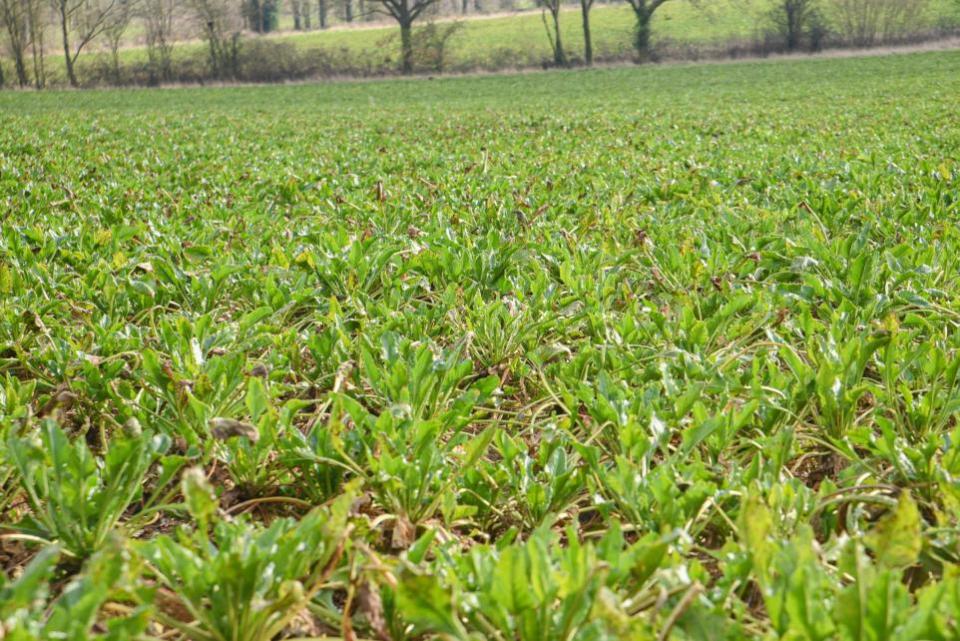

“Compared to people whose homes are flooded, this is actually insignificant, but the wet weather has had quite a significant impact on our business.
“We had clearly planned for grains to be sown in the autumn. We had to buy spring seed which was in short supply and the price reflected that – so that had an impact on cash flows.”
James managed to get about three-quarters of his drilling completed last fall before the heavens opened – but there’s still a lot of work to be done.
“The workload in the spring will be enormous – and we are not the only ones who failed to drill everything in the autumn,” he said.
Not only that, but the weather has caused damage to drainage systems – and on his own farm he has seen fields silt up – despite the fields being under-drained. “I’ve seen wetness in places I’ve never seen it before,” he said.
At the same time, grain prices have fallen.
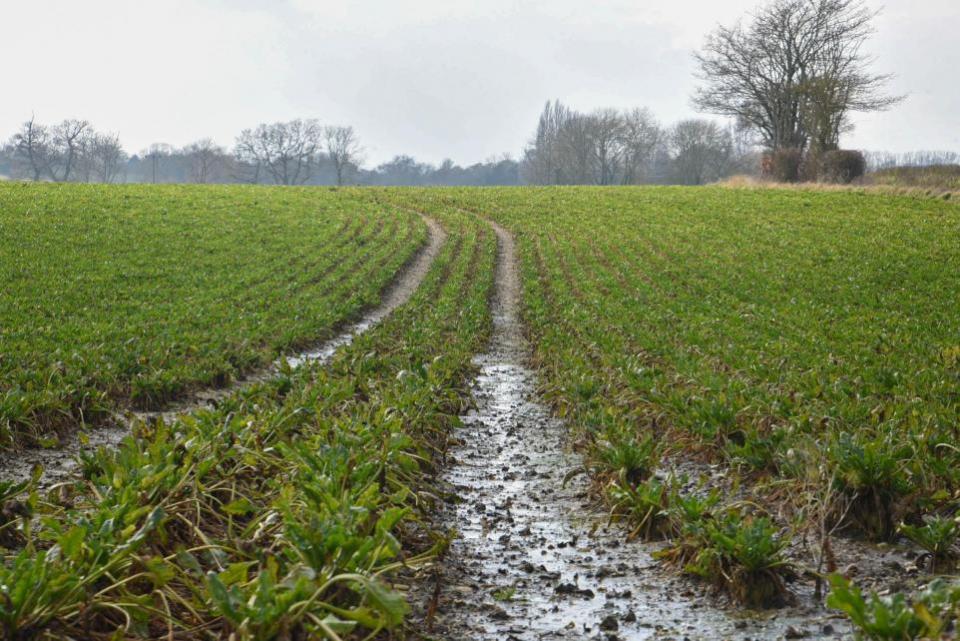

“This will have serious consequences,” he said. “There is a lot of concern in the industry. We have some pretty bad looking crops here because of the weather. Prices have dropped significantly. Things are not looking good.
“We have prepared budgets and cash flows and it is not a particularly exciting prospect at the moment.”
East Anglia has experienced its warmest and wettest February on record. An average of 106.4mm of rain fell during the month, surpassing the previous record of 95.2mm set in 1916. The average temperature was 8.2°C, surpassing the previous record of 7.6°C set in 1990.
Like James, Andrew Francis from Home Farm Nacton, near Ipswich, is frustrated. He still has two to three hectares of beets to harvest.
“There’s a chance we won’t get them out in time. Anyone who has beets left will face factory closures,” he said.
The tough choice may end up being that you have to pay much higher transportation costs to take them to a factory further away that is still open – otherwise you lose the crop, he said.
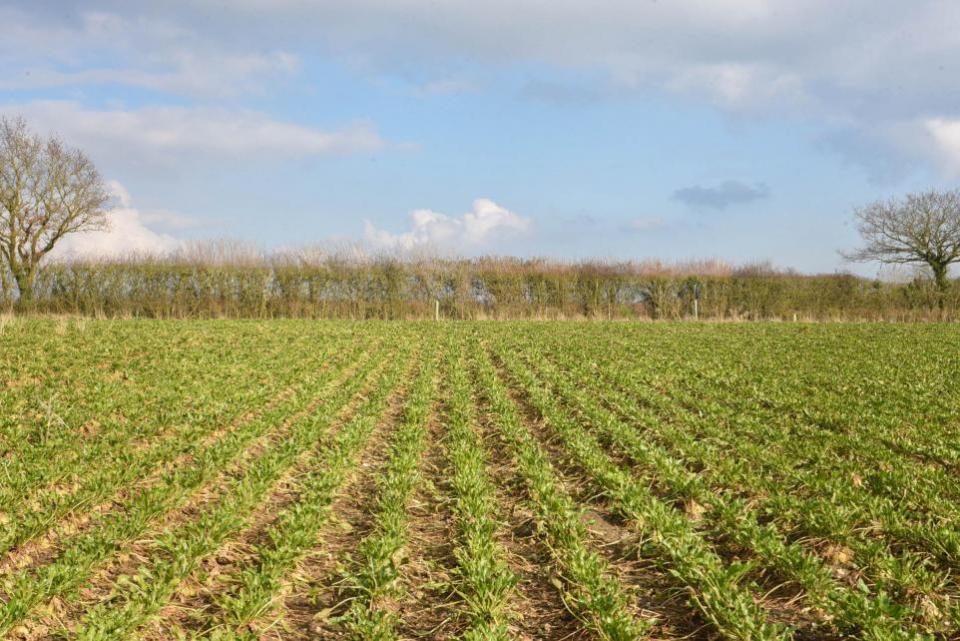

In addition to harvest problems, he also had problems sowing crops – and he estimated that the rains had delayed his crucial sowing season by two to three weeks.
“What we are dealing with now is a work calendar that is condensing,” he said. “We are probably already experiencing some yield loss due to the position on the calendar. Some of these fields will take one to two weeks to dry.”
He added: “There may be areas of the farm that don’t have a food crop in them. We can put them in ground cover this season.”
Andrew Blenkiron, director of the Euston Estate near Thetford, said conditions this year were “frustrating and costly” for sowing and harvesting crops.
This affected both the sowing of autumn crops and the harvesting of sugar beets in winter, flooding a river area where sheep usually graze for most of the season.
“We cannot continue with the farm work now, so we are struggling to prepare the land for planting spring crops.
“We’re probably a month behind where we’d like to be and that’s starting to get very frustrating.
“There will be a financial impact if we cannot get the autumn crops planted and the delay now will potentially impact yields as we get further into the summer.”
British Sugar, meanwhile, is winding down its operations and has given expected dates for the closure of some of its factories.
Dan Downs, head of agriculture at British Sugar, said: “We are continuing to run all East Anglian factories at minimum production to extend the campaign duration as much as possible to help our growers, transporters and harvesting contractors.”
The expected end dates of the campaign for the mills are: Bury St Edmunds – March 9, Wissington – March 15, Cantley and Newark – early April – with dates dependent on the harvest volume received.
“We continue to monitor the situation closely and maintain regular contact with our growers and transporters as we work together to bring the 2023-2024 season to a close,” Mr Downs said.